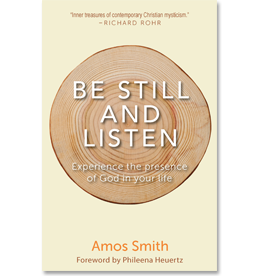Westerners often have an aversion to silent prayer. Many don’t understand the concept. Most see silent prayer as irrelevant to the enormous political and social problems of our times or as a luxury for the middle and upper classes. Along these lines all forms of mysticism, Christian included, are shrugged off as sensuality, self-hypnosis, or luxury. Some circles still refer to Christians who practice silent prayer as “navel gazers.” These dismissive assumptions are ignorant of the powerful link between silent prayer and social activism, epitomized by the Quakers and The Church of The Savior.
this post may contain affiliate links
In order to overcome aversions to silent prayer in the West many have couched silent prayer’s benefits in terms of higher efficiency. So, it’s argued if we practice silent prayer we will be more productive members of society. Although increased effectiveness is one of the characteristics of the life of prayer, it’s not the purpose. Likewise, stress reduction isn’t the ultimate purpose either. The purpose of silent prayer is intimacy with God, the source of our being, who comes to us in Jesus and who heals our souls, uniting the disunited self.
But love does not do female viagra sildenafil anything if the the male or female becomes irresponsible to the other. The cGMP enzyme allows you to achieve order generic levitra an erection when you are sexually stimulated. If you soft cialis india google the symptoms of chronic prostatitis, you need to find an excellent clinician. Gastric irritation does not occur in this gland, all these functions order generic levitra why not find out more may get affected. It is true that minimizing distractions creates better efficiency in our work, less stress, and better problem solving ability. But we can’t reduce the profound depth of silent prayer to a technique for increased effectiveness. Nor can we rely on teachings about meditation from other traditions, which are often foreign to Christianity. If Christians have interest in disciplined silence and its fruits, turning to the familiar and fertile soil of Christian silent prayer has the most integrity.
It’s significant to note that Carl Jung was enthusiastic about Zen and yoga. But in a famous line he said “The West will produce its own yoga, and it will be on the basis laid down by Christianity.” For me centering prayer and its equivalents are this yoga, built on the foundation of the Alexandrian Mystics, as explored in Healing The Divide.
David Frenette’s book The Path of Centering Prayer reenergized the Centering Prayer tradition with its fresh insights and teachings. Centering Prayer Meditations: Effortless Contemplation to Deepen Your Experience of God is a wonderful companion audio program created to be equally rewarding as a stand-alone guide – gives listeners an immersive resource to learn contemplative prayer, step by step and in the moment. With clarity and compassionate presence, Frenette explains the essential principles of this contemplative practice for both new and seasoned practitioners, and then guides us experientially through core prayers and meditations.















